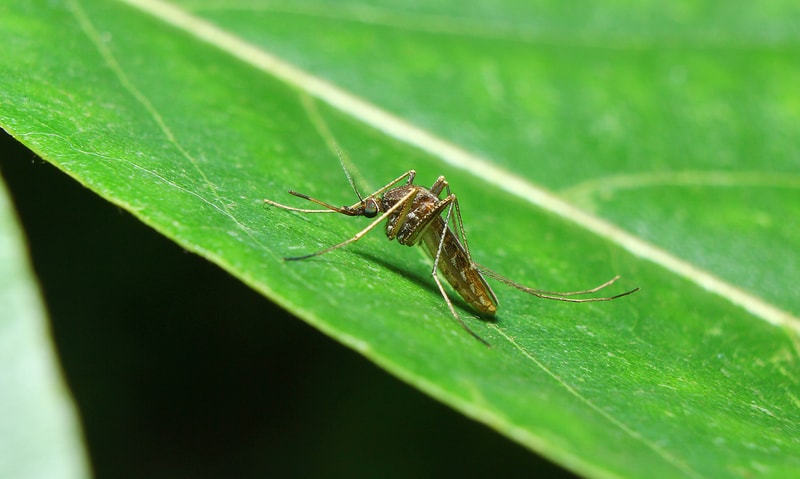We usually think of mosquitoes as being summer pests. It's true that mosquitoes breed in warm, wet environments, especially when the temperature reaches over 80 degrees Fahrenheit. However, depending on where you live, mosquitoes can be a year-round problem. In most parts of the United States, mosquitoes can be active in the spring, summer and fall. In warm, southern climates, mosquitoes may even be active in the winter.

When do mosquitoes go away?
For some mosquito species, the unfortunate answer may be “never.” Even if they are less active when the temperature drops below 50 degrees Fahrenheit, mosquitoes don’t entirely disappear in the winter — their life cycle continues. In some species, the adults or eggs survive cooler winter temperatures by overwintering. The eggs will go into a form of diapause until the right temperatures and conditions are continuously present for the eggs to continue their development.
What temperature kills mosquitoes in the fall?
A hard or killing frost will kill virtually all exposed mosquitoes. A killing frost is defined as two consecutive hours at a temperature below 28 degrees Fahrenheit.
What do mosquitoes do in the fall?
The shorter days of fall can trigger some mosquito species to overwinter, of which there are multiple ways and it generally depends on the species. Some species of mosquito hibernate through the winter in hiding spots like burrows created by other animals. Other species go through winter in immature life stages and wait until warmer weather presents itself before continuing their development.
The Aedes aegypti and Aedes albopictus mosquitoes, known transmitters of the Zika virus, overwinter in the egg stage. As the temperatures begin to fall, adult females lay mosquito eggs in standing water. The adult mosquitoes eventually die while the immature eggs wait until warmer weather to continue development.
For Culex pipiens, known transmitters of the West Nile virus, only females survive the winter. These mosquitoes hold onto their immature eggs through the winter and wait until spring to develop them to maturity and deposit them. Male and female mosquitoes mate in the fall, and females stop taking blood meals, feeding only on sugar instead. Their ovaries stop working, so their eggs will not mature.
The females accumulate plenty of fat to sustain them over the winter. Research has found that “a hormonal response is behind the mosquito’s ability to store up extra fat and halt reproductive activity in preparation for its months-long dormancy,” according to David Denliger, senior author of the Ohio State University study. Overwintering females seek shelter in warm places like caves, culverts and homes.
How to help control mosquitoes during the fall
You can take steps to help remove nearby mosquito breeding grounds in the fall by reducing the amount of water in your yard. To do so:
- Remove standing water in flower pots, bird baths, tires and any small containers that are the size of a bottle cap or larger.
- Clean your gutters and fix leaky pipes and faucets outside
- Remove piles of leaves to help get rid of mosquito homes and breeding area, as these leaves may prevent proper drainage in your yard, leading to standing water
However, preventing and removing mosquitoes with DIY methods can be quite the challenge. Contact Terminix to help protect your home with a mosquito control plan.



